
Understanding Your Credit Score And Report
When facing the prospect of foreclosure in Texas, it is critical to understand how your credit score and report can affect your ability to remain a homeowner. Your credit score is a numerical representation of your financial history and conduct that determines your eligibility for a mortgage or loan.
A low credit score can lead to higher interest rates, making paying property taxes and HOA fees more difficult. Missed payments or loan defaults can negatively impact your credit score, leading to financial difficulties.
Check your credit report for inaccuracies regularly and make efforts to enhance your credit score if necessary. Understanding your credit score and report might help you better prepare for surviving foreclosure in Texas.
Proven Ways To Boost Your Credit Score

If you are a Texas homeowner facing foreclosure, you may feel overwhelmed and confused about how to deal with the situation. Consider how property taxes and HOA levies may affect your credit score.
These expenses can quickly accumulate and, if underpaid, have a negative impact on your credit score. There are effective strategies to improve your credit score, especially during this difficult time.
Staying current on your property taxes and HOA payments and aggressively managing and reducing other bills will help you improve your credit score and raise your chances of avoiding foreclosure. Seeking financial advisor or credit counselor coaching can help improve your credit score.
Take action immediately to safeguard your home and financial stability.
Managing Debt: Strategies For Prioritizing Payments
Managing debt can be challenging, especially for homeowners facing foreclosure in Texas. In addition to mortgage payments, property taxes and HOA assessments are significant financial commitments that must be addressed.
When struggling to make ends meet, setting and adhering to a budget is critical. To prevent acquiring more debt, prioritize paying off loans with the highest interest rates.
Consider negotiating with lenders or seeking financial counseling to manage debt and avoid foreclosure. Taking early steps and prioritizing payments can help homeowners negotiate the impact of property taxes and HOA assessments on their homeownership during a difficult financial period.
Exploring The Texas State Law Library’s E-book Collection
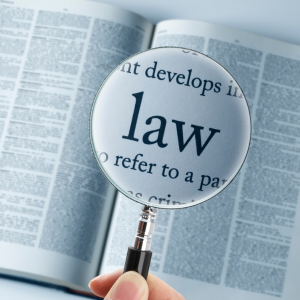
After going through foreclosure in Texas, it can be hard to figure out what to do, especially when property taxes and HOA fees are involved.
These financial problems can make it hard to stay in your home and add to the stress of dealing with a possible sale.
The Texas State Law Library has a huge collection of e-books covering many foreclosure topics, such as how property taxes and HOA fees affect the process.
With easy access to useful information, you can learn about the rules and laws in Texas that govern foreclosures and how to protect your rights as a renter.
Navigating The Loss Mitigation Process: A Guide
Many Texas homeowners who are facing foreclosure find it hard to figure out the loss mitigation method. Property taxes and HOA fees can add even more stress to your finances if you can’t make your mortgage payments.
Homeowners may struggle to pay their monthly bills when these ongoing costs keep increasing. But renters can get through this process and maybe even save their homes if they can follow these steps.
When people are trying to reduce their losses, it’s important for them to know their rights and choices. For example, they can talk to lenders or look for help through government programs. Texas homeowners who take action and get help from pros have better chances of surviving foreclosure and keeping their homes.
Types Of Liens Eligible For Foreclosure In Texas
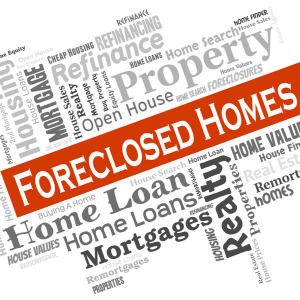
When facing foreclosure in Texas, it is critical to understand the many types of liens that are eligible for foreclosure. This covers property taxes and HOA levies, which can significantly affect homeownership.
Local government imposes property taxes, and failure to pay might result in a lien on the property. Similarly, HOA assessments are fees levied by a homeowner’s organization to cover the cost of maintaining and upkeeping common amenities within a neighborhood.
If these fees are not paid, a lien may be filed against the property. If either of these sorts of liens is not paid for an extended period of time, it might result in foreclosure.
To avoid foreclosure, homeowners must monitor their financial obligations and resolve any potential difficulties with property taxes or HOA assessments.
The Progression Of A Foreclosure Case In Texas
In Texas, the eviction process can take a long time and be scary. Foreclosure usually starts when a homeowner falls behind on their mortgage payments, which makes the lender start the foreclosure process.
The homeowner will then get a letter of default and have a certain amount of time to make up any payments they missed. The lender will file a case and ask the court to order the property to be sold at auction if they can’t do it.
During this time, property taxes and HOA fees keep adding up, worsening the homeowner’s financial situation. Homeowners who are in danger of losing their homes to foreclosure can modify their loans or file for bankruptcy, but they need to act quickly before it’s too late.
An In-depth Look At Foreclosure Laws In Texas
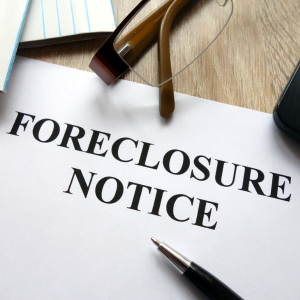
Texas’s foreclosure rules have a big effect on homeowners who are already having a hard time with the process. One important factor that can greatly affect a homeowner’s chances of staying in their home and not losing it is property taxes.
Property taxes in Texas are some of the highest in the country. This makes it hard for homeowners to make their mortgage payments and property tax bills at the same time. People whose homes are in danger of foreclosure may also have to pay HOA fees, which can make an already tough financial position even worse.
People in Texas who want to keep their homes and not lose them through foreclosure need to know all the details of the process.
Legal Remedies For Avoiding Foreclosure In Texas
If you are in Texas and your house is about to go into foreclosure, you should know what legal options you have to keep your home. You can question the property tax assessment on your home, which may make it much harder for you to make your mortgage payments.
Another thing you might be able to do is talk to your homeowners association (HOA) about lowering or delaying your taxes until you can repay your debts. Also, getting help from a foreclosure defense lawyer can be very helpful and can even defend you in court if needed.
If you want to avoid default in Texas, you need to act quickly and look into all of your options.
How To Successfully Stop Foreclosure In Texas: Step-by-step
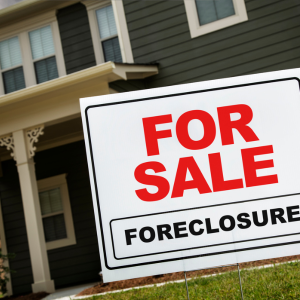
If you are facing foreclosure on your Texas home, it is critical that you understand the influence that property taxes and HOA charges can have on your ownership. These persistent financial demands can make it difficult to make mortgage payments, eventually leading to foreclosure.
However, you can successfully stop foreclosure in Texas. The first step is to educate yourself about your rights as a homeowner and the laws and processes linked to foreclosure in Texas.
Communicate with your lender to seek debt adjustments and repayment strategies. It may also be useful to consult with a housing counselor or attorney who specializes in foreclosure prevention.
Furthermore, remaining organized and keeping detailed records of all communications with your lender can assist enhance your case for foreclosure prevention. By taking these steps, you can improve your chances of successfully preventing foreclosure and retaining your Texas property.
Halting Foreclosure In Texas: Effective Methods
Carefully managing and paying property taxes and HOA fees is one of the best ways to stop foreclosure in Texas. These fees can make owning a home very hard, especially if you are having trouble making your mortgage payments.
People whose homes are in danger of default need to prioritize these costs and make their payments on time to avoid further debt. In Texas, property taxes are set by county appraisal districts, and they can be very different in different areas.
In addition, HOA fees can add up quickly and be hard to pay if they aren’t paid. By staying organized and sticking to a budget, homeowners can keep up with these important costs and avoid foreclosure.
Facing Foreclosure? Know Your Rights As A Homeowner In Texas

Know your rights as a homeowner in Texas if you are facing the potential of foreclosure. For example, know how property taxes and HOA fees can affect your ability to keep your house.
Texas’s local governments get a lot of their money from property taxes, which can be very different from one county to the next. A homeowner’s association also requires regular assessments to cover neighborhood amenities and upkeep.
These costs may become too much to handle, especially if you already have trouble making home payments. To protect you as a homeowner and possibly avoid foreclosure, you should learn about the rules and laws governing property taxes and HOA fees.
Exploring Alternatives To Losing Your House In Texas
Foreclosure in Texas can be a stressful and overwhelming situation for homeowners. Property taxes and HOA levies can make homeownership more stressful and financially burdensome.
However, there are other choices available to help you avoid losing your home. Options include negotiating with lenders, requesting loan modifications or refinancing, filing for government aid, or selling the house through a short sale.
It is critical for homeowners to educate themselves on these options and seek professional advice to identify the best course of action for their unique situation. By making proactive efforts and investigating alternatives, Texas homeowners may be able to avoid the heartbreaking loss of their house due to foreclosure.
Dealing With Mortgage Default: Tips For Texans
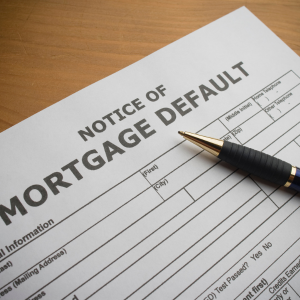
Being a homeowner in Texas and having to deal with the chance of foreclosure can be super stressful. What effect will property taxes and HOA fees have on your ability to keep your home? This is a primary concern.
If money problems put you at risk of not paying your mortgage, you should protect your home. This includes knowing about changes in property tax rates, talking to your HOA about payment plans or lower fees, and looking for help from places like government aid programs or financial counseling services.
Taking these steps and being careful with your money can increase your chances of avoiding foreclosure and staying a homeowner in Texas.
Can I Keep My House In Loss Mitigation In Texas?
The effect of property taxes and HOA dues on your capacity to retain your home through loss mitigation may be on your mind if you are facing the frightening potential of foreclosure in Texas. Knowing that these costs can add up to a lot of money can be very important for homeowners, particularly in poor times.
It is possible to get assistance in navigating this challenging circumstance, though. You might even get government assistance programs by consulting with an experienced attorney and thoroughly reviewing your financial situation to work out a realistic payment plan with your lender.
As time passes, it may become more difficult to achieve a favorable conclusion for retaining your beloved Texas house, therefore it is critical that you move swiftly and take all appropriate action.
How Many Missed Payments Before Foreclosure In Texas?
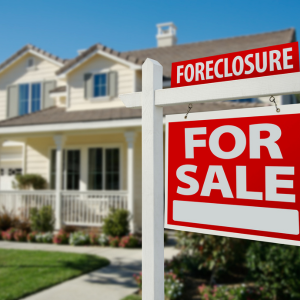
When facing foreclosure in Texas, homeowners must examine how property taxes and HOA assessments affect their ability to keep their house. It is critical for homeowners to understand that missing payments can swiftly result in foreclosure proceedings.
In Texas, a homeowner usually has 120 days from the first missed payment before the foreclosure process begins. This provides homeowners with a small window of opportunity to take action and avoid foreclosure.
However, homeowners must stay current on all property taxes and HOA assessments to prevent falling behind on payments and losing their homes. By keeping informed and proactive, homeowners in Texas can improve their odds of surviving foreclosure.
How Long Does Foreclosure Take In Texas?
When it comes to Texas foreclosures, the length of the process can be affected by many factors. One very important thing to consider is how property taxes and HOA fees affect owning a home.
As missed payments and fees add up over time, these extra costs can make the eviction process take longer. Foreclosure can take different amounts of time depending on whether it is a judicial or non-judicial process. Judicial processes usually take longer because of the court hearings.
The length of time it takes to go through default in Texas can also depend on the housing market and the person’s specific situation. If a homeowner is facing foreclosure, they need to talk to a lawyer right away and deal with any money problems right away so that they don’t have to go through long legal fights and the problem is solved faster.
What Is The Redemption Period In Texas?
In Texas, the redemption period is the time period during which a person can get back their home after it has been foreclosed on. In this state, you have two years from the date of the default sale to get your home back.
This is when the homeowner can pay off any back taxes and HOA fees, as well as any other fees or charges connected with the eviction process. If these obligations are met within the redemption time, the homeowner can regain ownership of their home.
But if they don’t, the land will be lost forever and sold to someone else. If a homeowner in Texas is facing foreclosure and wants to keep their home, they need to understand and be aware of this redemption time.
Read on to learn more about how to sell a house in Texas. These findings apply all over Texas, including Fairview, Austin, El Paso and nearby areas. For more help, contact us at (833) 997-7653.
Get An Offer Today, Sell In A Matter Of Days
More Resources To Help You Sell Texas Property
| MORTGAGE LOAN | MORTGAGE DEBT | CREDIT CARDS | DEED | HOUSING AND URBAN DEVELOPMENT | HOUSING AND URBAN DEVELOPMENT (HUD) |
| US DEPARTMENT OF HOUSING AND URBAN DEVELOPMENT | HUD | LITIGATION | LAWSUITS | TITLE INSURANCE | TITLE COMPANY |
| PREMIUM | INSURANCE | DEFAULTED | BLOG | NEGOTIATIONS | NEGOTIATOR |
| MONEY | MIND | FEDERAL HOUSING ADMINISTRATION | FHA | FEDERAL HOUSING ADMINISTRATION (FHA) | INVESTMENT |
| BORROWER | ACCELERATION | PRICE | POLICY | INFORMATION | INCOME |
| PROPERTY OWNERS ASSOCIATION | HOME EQUITY | FORBEARANCE AGREEMENTS | FORBEARANCE | EXPERTISE | EXPERT |
| EQUITY | CASH | THE UNITED STATES | TRUST | TAX LIENS | REPOSSESSES |
| REPOSSESSED | CERTIFIED MAIL | DEED OF TRUST | LEGAL AID | LATE FEES | INSURANCE POLICY |
| HOTLINE | HOME EQUITY LOAN | DOCUMENT | DISSOLUTION OF MARRIAGE | DIVORCE | |
| CREDIT HISTORY | CREDIT RECORD | CHAPTER 7 BANKRUPTCY | ASSET |


